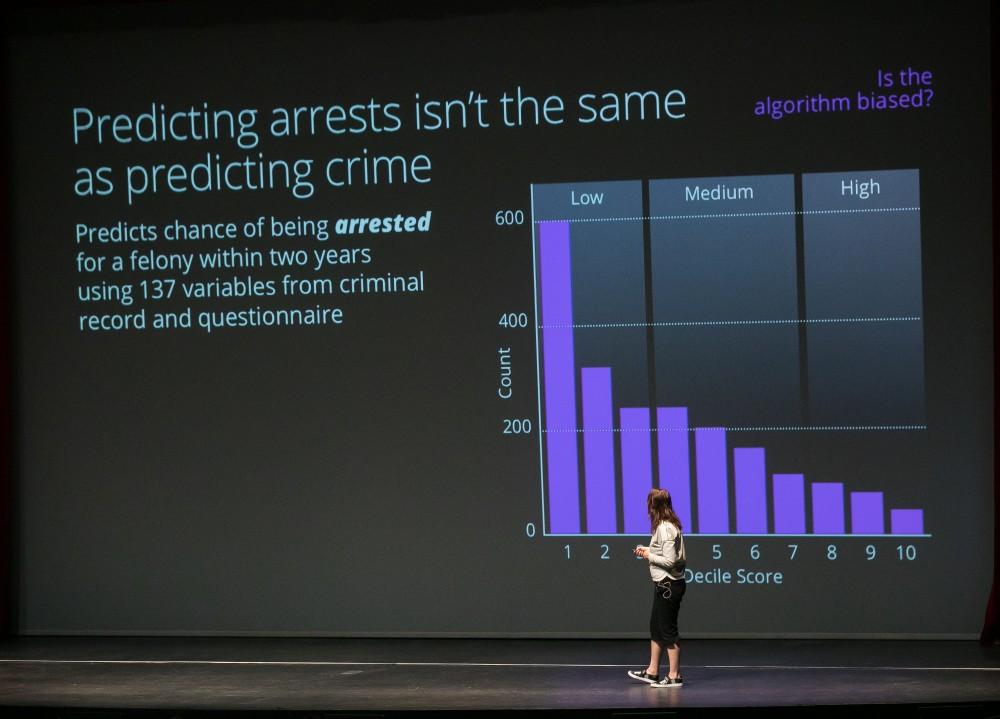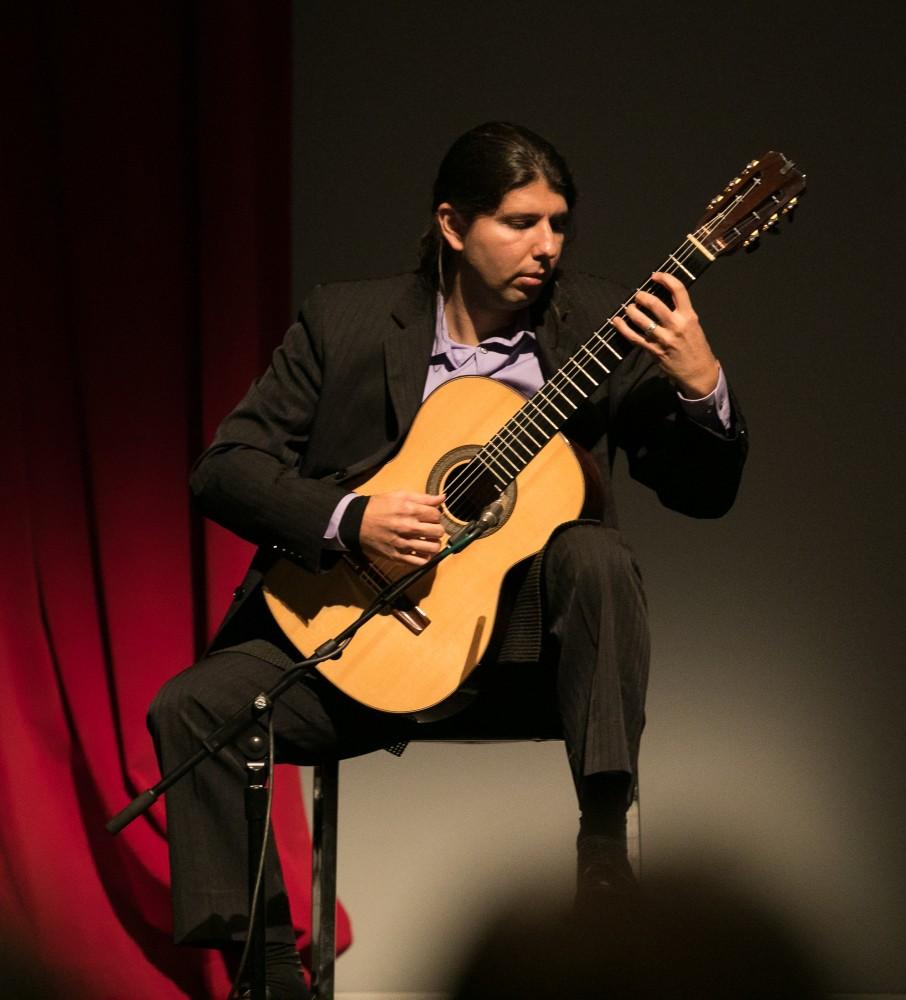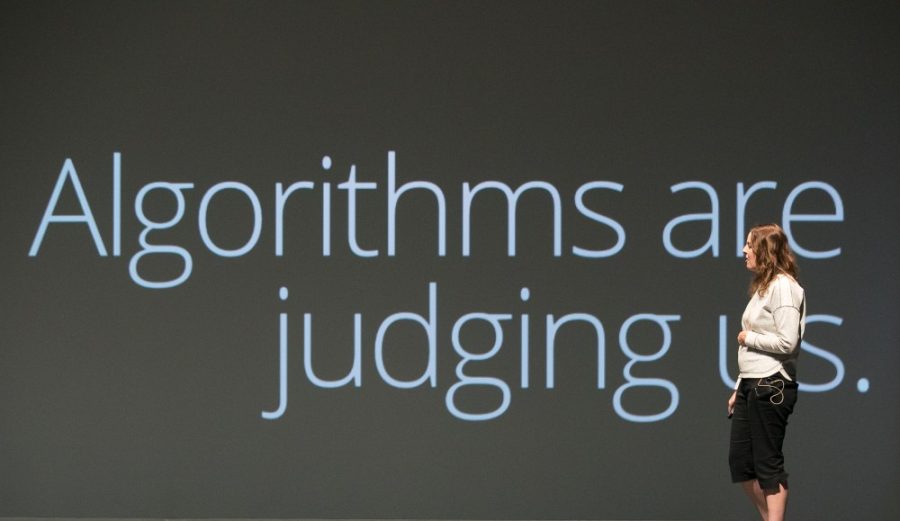While the final preparations were being made in Centennial Hall for the last lecture in University of Arizona College of Science’s “Humans, Data and Machines” lecture series, a group of local teachers gathered in a nearby classroom to discuss what they learned from the series’ speakers and how to apply it in their own classrooms.
These teachers, representing Tucson schools at every level, were led in their class discussions by John Pollard, a professor of chemistry and biochemistry and the interim assistant dean for Academic Affairs at the Honors College.
Pollard’s course offered teachers an opportunity to interact firsthand with each speaker during a private Q&A after the talk and also share ideas on how to bring this science back into their classrooms.
RELATED: From STEM to flower: Science City brings public-friendly science to the Festival of Books
For Tucson High Magnet School teacher Margaret Wilch, this was not her first lecture series course. She’s been coming since 2006.
“I think this year’s course and lecture series has been a fabulous opportunity for our area of teachers to rejuvenate and get their geek on by exploring new ideas and challenging their thinking,” Wilch said.

The last lecture in the series married ideas about “big data” and its impact on education — a perfect topic to end the course on. The lecture was given by Vincent J. Del Casino Jr., vice president of Academic Initiatives and Student Success and professor of geography and development. The lecture was his second time speaking at the annual series.
Del Casino warned the audience big data cannot solve all social problems.
Before the lecture, Pollard’s class found an apt example: While a machine may be able to predict the probability of a successful surgery based on millions of individuals’ experiences, interacting and discussing with a human doctor is still a reasonable expectation for a patient. Working with machines provides the best of both worlds.
Today, our phones and institutions collect thousands of data points. But what are they to do with all of this?
Del Casino, who helped jump-start UA Online, wants to create students with interdisciplinary skills to succeed in this emerging complex, multifaceted, machine-based world.
“A history major with a little bit of coding and digital marketing is going to do great out in the world, because they have the intellectual flexibility to do the creative analytic work of a historian and they have these other skills that they have built,” Del Casino said.
Pollard took a different frame of reference when reflecting on the lecture series.
“This lecture series made me realize, at least in learning science and social science, we are entering an era where big data and the intelligent processing of big data is going to have to become an integral part of our education,” Pollard said.
For example, at UA, researchers like fellow lecture speaker Mihai Surdeanu, an associate professor of computer science, are applying artificial intelligence to reading scientific papers for humans and outperforming human capability on a number of other tasks.
Jane Bambauer, professor of law at the James E. Rogers College of Law, spent her lecture examining the still-unanswered but pressing question of how machine learning algorithms are going to figure out morality.
How will we interact with data and machines in the future? These are profound questions.
Yet in the classrooms of Tucson, just as coding is now considered critical, soon so will the statistical analysis and application of big data sets and machine learning systems, Pollard said.
Already, students as early as high school can collect thousands of data points of atmospheric or health data using just their cell phones, and they can interact with machine learning every day. According to Pollard, new pressures and demands on teachers is not something UA can ignore.

“We, as an institution of higher education, have to be leaders in helping to support the teachers who are sending students to us, as well as be aware of the changing climate of how we interact with data and think about that with our students,” Pollard said.
For Del Casino, the luxury of university life is being able to sit around and think about big questions and problems. To him, it offers the safety to make mistakes in the search for a solution.
For UA, that means pursuing research to create machines to solve problems and thinking about their implications. It also means reaching out the community.
RELATED: ‘Sustainable Built Environments’ lecture series leads off with UA’s Champion
“People still come to universities when they want an answer to a big question,” Del Casino said.
That gives universities a big responsibility to reach out, inform and excite discussion in the broader community. The UA College of Science’s lecture series does just that.
Pollard’s part of that outreach is providing local teachers an environment to reconnect with their passion for learning.
“Having time to learn for the sake of learning is really valuable,” Pollard said.
At times, you have to follow the airliner’s rules and place the oxygen mask on yourself first, Pollard said.
“Sometimes, our teachers have to be invigorated by gaining knowledge so they are inspired to go back and integrate some of this content into the classrooms,”
Pollard said.
For Wilch, the connections she has formed over the years through the course, and the tremendous amount she has learned, filters down to her students in her biotechnology courses.
“This year’s lecture series surpassed my expectations,” Wilch said.
Follow Randall Eck on Twitter









